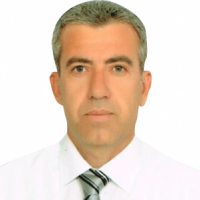-
Iran's Missile Messages to U.S and Kurdistan Regional Government

From time to time, Iran sends inimical messages to US and Kurdistan Regional Government (KRG) through pro-Iranian militias in Iraq. On 15th February, a barrage of rockets hit a U.S airbase at the International Airport of Erbil, the capital of Kurdistan Region of Iraq. Despite Iran’s official denial of involvement, most indications suggest that Iran was behind the rocket strike.
Iran’s antagonistic letters carry tacit political signals to Biden’s administration as well as to KRG. More precisely, to Kurdistan Democratic Party (KDP) who has no good relationships with Tehran. Iran’s first signal to Biden’s administration is the necessity to return to 2015 nuclear deal without preconditions. Therefore, many observers consider this attack as the first serious test of Biden’s Iran policy.
Another purpose that Tehran wanted to accomplish is to remind its bitter adversary, viz., U.S, that Iran is still the most powerful rival to U.S and its allies in Iraq. Moreover, to demonstrate that Iran, through pro-Iranian armed groups, can move easily from defense to offensive position anytime and anywhere it desires. In other words, to prove that it can change the game rules in Iraq upside down, which have been placed by U.S since 2003.
The recent rocket attack on Erbil was claimed by a Shia group called Saraya Awliya al-Dam, or Guardians of Blood. However, Iraqi security officials told “Agence France-Presse” that the name of this group is fictitious of well-known armed factions loyal to Iran that want the American forces to withdraw from Iraq. Anyway, it is one of a series of popular, political, and violent activities against the presence of U.S in Iraq led by pro-Iranian factions.
Tehran’s current escalating message against U.S is that Iran can launch individual operations against various American targets in Iraq. The goal is to gradually push US forces to withdraw from Iraq. Therefore, it would be better for Washington, according to Iran's expectations, to return to 2015 nuclear deal without prerequisites plus to lift economic sanctions on Iranian government. Especially since Tehran increased the level of uranium enrichment and threatened to withdraw from the 2015 agreement by the 21st of February if US did not implement Iranian conditions.
For the relatively stable and prosperous Kurdistan region compared to the rest of Iraq, Iran began to antagonise Erbil and KDP since the independence referendum in September 2017. It started with taking control of the city of Kirkuk via its affiliated Popular Mobilisation Militias in October 2017 after the withdrawal of Kurdish Peshmerga.
On September 30, 2020, pro-Iranian militias fired 6 missiles at a place near Erbil International Airport. On 17th October 2020, Pro-Iran protesters torched KDP offices in Baghdad. Nowadays, Iran demands its loyal Shiite political forces in Iraq to review the Iraqi constitution and to abolish federalism in order to harm the Federal Kurdistan Region.
Meanwhile, Iran is still working to disrupt the agreement that was reached between Baghdad and Erbil on Sinjar last October. All these aggressive policies and others are because of KRG’s rejection to surrender to Iranian agendas in Iraq, including the Silk Road project that is supposed to pass through Sinjar, the disputed area between KRG and Baghdad. This road, which would link Iran directly to the Mediterranean in Syria and Lebanon together. Iran's current escalation against Kurdistan region coincides with Turkey’s successive military operations in Iraqi Kurdistan under the pretext of fighting PKK militants.
Probably Iran will continue, via its local militias, to target American bases everywhere in Iraq including Kurdistan region. Even, it is more likely that Iran will intensify such aggressive activities in the near future to coerce US to go back to 2015 nuclear deal. In this context, Iran will not hesitate to cooperate with Turkey that share together antagonism towards Kurdish aspirations in the entire region. Likewise, both states are outraged by American military role in Iraq and Syria, the role that both countries dislike it, and both want to weed out promptly.
Jwan Dibo

You May Also Like
Popular Posts
Caricature
BENEFIT Sponsors BuildHer...
- April 23, 2025
BENEFIT, the Kingdom’s innovator and leading company in Fintech and electronic financial transactions service, has sponsored the BuildHer CityHack 2025 Hackathon, a two-day event spearheaded by the College of Engineering and Technology at the Royal University for Women (RUW).
Aimed at secondary school students, the event brought together a distinguished group of academic professionals and technology experts to mentor and inspire young participants.
More than 100 high school students from across the Kingdom of Bahrain took part in the hackathon, which featured an intensive programme of training workshops and hands-on sessions. These activities were tailored to enhance participants’ critical thinking, collaborative problem-solving, and team-building capabilities, while also encouraging the development of practical and sustainable solutions to contemporary challenges using modern technological tools.
BENEFIT’s Chief Executive Mr. Abdulwahed AlJanahi, commented: “Our support for this educational hackathon reflects our long-term strategic vision to nurture the talents of emerging national youth and empower the next generation of accomplished female leaders in technology. By fostering creativity and innovation, we aim to contribute meaningfully to Bahrain’s comprehensive development goals and align with the aspirations outlined in the Kingdom’s Vision 2030—an ambition in which BENEFIT plays a central role.”
Professor Riyadh Yousif Hamzah, President of the Royal University for Women, commented: “This initiative reflects our commitment to advancing women in STEM fields. We're cultivating a generation of creative, solution-driven female leaders who will drive national development. Our partnership with BENEFIT exemplifies the powerful synergy between academia and private sector in supporting educational innovation.”
Hanan Abdulla Hasan, Senior Manager, PR & Communication at BENEFIT, said: “We are honoured to collaborate with RUW in supporting this remarkable technology-focused event. It highlights our commitment to social responsibility, and our ongoing efforts to enhance the digital and innovation capabilities of young Bahraini women and foster their ability to harness technological tools in the service of a smarter, more sustainable future.”
For his part, Dr. Humam ElAgha, Acting Dean of the College of Engineering and Technology at the University, said: “BuildHer CityHack 2025 embodies our hands-on approach to education. By tackling real-world problems through creative thinking and sustainable solutions, we're preparing women to thrive in the knowledge economy – a cornerstone of the University's vision.”
opinion
Report
ads
Newsletter
Subscribe to our mailing list to get the new updates!






















